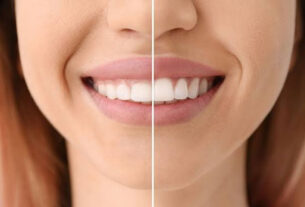According to several studies’ critics, not enough typical members of society were included. And this, despite the mountain of evidence amassed in recent years demonstrating the many advantages of a daily meditation practice. The trials often used non-random samples (such as Buddhist monks or veterans) and neglected to include a placebo control group, the gold standard for evaluating the validity of scientific studies. No one has ever before imagined that pretending to be aware by engaging in what is essentially a meditation placebo would have real, quantifiable effects on one’s body.
Talking About the Studies
For the first time, a study undertaken at the start of this year and published in Biological Psychiatry has shown a direct correlation between conventional meditation practices and a rewiring of the brain. All told, 35 recently laid-off people agreed to take part in the study after being randomly selected. They were split into two groups, one that engaged in mindfulness meditation and the other that engaged in a sham version of mindfulness that centered on relaxation techniques.
As a result, the results of this study further support the idea that regular meditation practice has several positive effects on health. But it’s an intriguing revelation that the actual practice of meditation is what helps to improve our cognitive performance by switching us off from reactive autopilot mode, so general relaxation methods may help us get out of our brains and relieve internal pressures. This is a crucial stage in the development of our mental faculties. So what are affirmations, you need to know about it.
I’d want to see more large-scale, population-representative randomized trials like this one conducted in the future. Research like these will further debunk the notion that a person has to give up all traces of contemporary civilization in order to find inner peace and enjoy longer telomeres, as well as show that meditation may have a positive effect on brain chemistry and health in general. Its great when science finally catches up to what a lot of people have known for a long time. There may be a variety of ways in which meditation improves one’s health.
Bringing the patient’s blood pressure down
Learning to calm one’s nerves, lessening one’s own suffering, sharpening one’s focus and memory, and developing a clearer mental picture of oneself are all paths that lead to greater self-awareness.
Sleep quality enhancement
There are essentially three parts to the meditation practise that are not exclusive from one another
Posture of serenity, with just a few possible disruptions a mindset of receptivity in which one allows distractions to come and go as they choose a concentration on breathing regularly and deeply.
One may meditate alone, with others, or under the direction of a teacher (in person or through a mobile app or video). Start with a short session of five to ten minutes if you’ve never done this before; after you’ve gotten the feel of it, you may extend it.
Conclusion
Relax in a quiet place, close your eyes, and breathe deeply in through your nose and out through your mouth. You should spend a few minutes doing this before moving on. A practitioner’s focus should be brought back to the breath repeatedly during the exercise. If your mind wanders and you can’t seem to pull it back to the here and now, that’s no reason to give up. The truth is that this occurs often. Focus your attention once again on your breathing.





